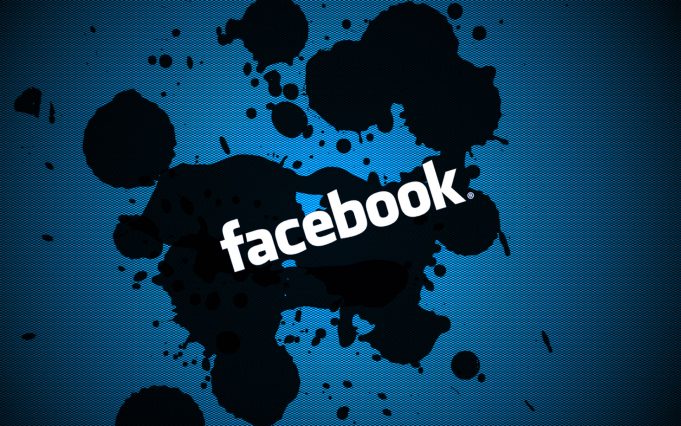Facebook, Inc. provides various products to connect and share through mobile devices, personal computers, and other surfaces worldwide. Its solutions include Facebook Website and mobile application that enables people to connect, share, discover, and communicate each other on mobile devices and personal computers; Instagram, a mobile application that enables people to take photos or videos, customize them with filter effects, and share them with friends and followers in a photo feed or send them directly to friends; Messenger, a messaging application to communicate with people and businesses across platforms and devices; and WhatsApp Messenger, a mobile messaging application. The company also offers Oculus virtual reality technology and content platform, which allow people to enter an immersive and interactive environment to play games, consume content, and connect with others. As of December 31, 2016, it had approximately 1.23 billion daily active users. Facebook, Inc. was founded in 2004 and is headquartered in Menlo Park, California.
BUSINESS ANALYSIS OF FACEBOOK

The Technology Sector is witnessing a major shakeup, new age business models in the industry are transforming both customers and businesses. Faced with this uncertainity, companies are investing resources to transform their business. An in-depth business analysis is a valuable resource to identify and articulate the need for a business model change. At R&P Research we believe, the starting point for a business analysis is Benchmarking. Business benchmarking can be done at various levels: 1) Industry Benchmarking 2) Peer Benchmarking 3) Disruptors Benchmarking. In this report, we share the snapshot of how Facebook compares against the industry on the major performance indicators. This analysis, along with peer group/disruptors benchmarking and revenue model understanding can help identify growth and cost optimization opportunities to maximize the value delivered by Facebook to its stakeholders. R&P Research Industry Intelligence Platform provides historical data for last 15 years with an easy to use benchmarking interface for an in-depth comparative business analysis.
- Revenue Growth: Facebook reported a revenue growth of 54.2% year-on-year during 2016. Internet Industry grew at 23.3% in the same period
- COGS share of Revenues: As a percentage of revenue, Facebook spent 13.7% of its total revenues on COGS. Internet industry average (COGS share of revenue) in the same period was 46.3%
- R&D; share of Revenues: As a percentage of revenue, Facebook spent 21.4% of its total revenues on R&D.; Internet industry average R&D; spending in the same period was 12.6%
- SG&A; share of Revenues: As a percentage of revenue, Facebook spent 19.9% of its total revenues on Sales, Marketing, and General Administration (SG&A;). Internet industry average SG&A; spending in the same period was 20.2%
- Inventory share of Revenues: Facebook Inventory share of Revenues details are not available because either company does not share the data or we do not have it
- Accounts Payable share of Revenues: As a percentage of revenue, Facebook invested 2.1% of its total revenues on Accounts Payable (A/P) Internet industry average Accounts Payable investment in the same period was 18.0%
- Accounts Receivable share of Revenues: As a percentage of revenue, Facebook invested 14.4% of its total revenues on Accounts Receivable (A/R). Internet industry average Accounts Receivable investment in the same period was 16.2%
- PP&E; share of Revenues: As a percentage of revenue, Facebook invested 31.1% of its total revenues on Property, Plants, and Equipments (PP&E;). Internet industry average PPE investment in the same period was 24.0%
- Intangibles share of Revenues: As a percentage of revenue, Facebook invested 74.7% of its total revenues on Intangibles. Internet industry average Intangibles investment in the same period was 32.7%
- Net Margins: Facebook Net Margins in the year 2016 were 37.0%. Internet industry average Net Margins in the same period were 12.2%
SECTOR AND INDUSTRY ASSOCIATION OF FACEBOOK

For the purpose of performance benchmarking of a company with a sector or industry average, R&P; Research associates every company with one sector and one industry. An industry consists of companies with related/similar business models. A sector comprises of a group of related/similar industries.
Facebook is associated with Technology Sector and Internet Industry.
Technology sector is comprised of the following industries: Computers Systems and Peripherals; Software; Semiconductor; IT Consulting and Outsourcing Services; Networking Equipment and Services; Internet; Other. The definitions for each of the industries is as follows:
- Computers Systems and Peripherals industry includes companies primarily engaged in manufacturing of personal computers, servers, mainframes, workstations, and other computer accessories and peripherals such as storage drives, mice, keyboards and printers. It also includes manufacturers of mobile phones and tablets.
- Software industry includes businesses providing software products such as operating systems, productivity suites, enterprise software, data and analysis software, advertising and marketing software, engineering and manufacturing software, networking software, and IT management software. It also includes companies providing industry-specific software focused on different sectors such as Financials, Automotive, Telecom, Utilities, Travel, Real Estate, Media, and Publishing.
- Semiconductor industry includes companies primarily engaged in manufacturing and distribution of semiconductor products such as microprocessors, chipsets, motherboards, flash memory, and wired and wireless connectivity products. It also includes companies that provide semiconductor equipment and services to the semiconductor industry.
- IT Consulting and Outsourcing Services industry includes companies primarily engaged in providing information technology consulting and outsourcing services to other businesses. The services include IT consulting, systems integration, application development and management, IT infrastructure management, and network operations management.
- Networking Equipment and Services industry includes companies primarily engaged in manufacturing and distribution of networking and communications equipment for transporting data, voice, and video traffic across intranets, extranets, and the Internet. The key products include routers and switches for local and wide-area networks, cable modems, teleconferencing equipment, and wireless access points.
- Internet industry includes Internet-based businesses providing products and services such as search engines, social networking, web hosting, email, domain name registration, and eCommerce. It also includes industry information/services portals focused on different sectors such as Financials, Automotive, Travel, Health, Real Estate, Media, and Publishing.
- Other industry includes companies providing products such as photocopiers, fax machines, point of sale machines, audio/video technologies, and video games. It also includes technology companies that are not part of other six technology industries.
INDUSTRY RANKING OF FACEBOOK

With $27.6 billion revenues, Facebook ranked number 3 of all the companies in the US Internet industry. There were a total of 74 public companies in the US Internet industry that had revenues greater than $50 million during 2016.
The top-10 companies in the US Internet industry by revenues during 2016 were:

BUSINESS MODEL ANALYSIS (BMA) FRAMEWORK
We use the following framework to assess the business model of a company. Business Model Analysis framework can be used by organizations to articulate growth strategies and identify cost optimization opportunities. Technology and consulting companies can use this framework to identify the value drivers and pain points of their targeted customers. Entrepreneurs can use this framework to understand the language of business and identify promising business opportunities. This framework can be used by any professional aspiring to take up a leadership role to better understand the businesses challenges, articulate growth strategy, and monitor the business improvement requirements for the organization.















